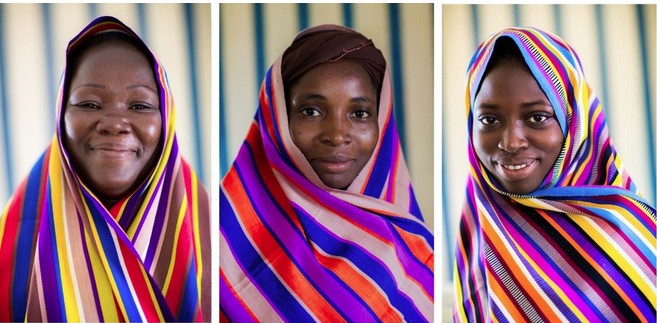- Where We Work
- Interactive Map
- Afghanistan and Pakistan
- Africa
- African Union
- Power Africa
- Trade and Investment Engagement
- Angola
- Benin
- Botswana
- Burkina Faso
- Burundi
- Cameroon
- Central Africa Regional
- Central African Republic
- Chad
- Côte d'Ivoire
- Democratic Republic of the Congo
- Djibouti
- East Africa Regional
- Ethiopia
- Ghana
- Guinea
- Kenya
- Lesotho
- Liberia
- Madagascar
- Malawi
- Mali
- Mauritania
- Mozambique
- Namibia
- Niger
- Nigeria
- Republic of the Congo
- Rwanda
- Sahel Regional
- Senegal
- Sierra Leone
- Somalia
- South Africa
- South Sudan
- Southern Africa Regional
- Sudan
- Swaziland
- Tanzania
- Uganda
- West Africa Regional
- Zambia
- Zimbabwe
- Asia
- Europe and Eurasia
- Latin America and the Caribbean
- Middle East
- Mission Directory

For the majority of women in Kenya, access to clean and renewable energy is rare. Working over kerosene stoves and smoky fires to prepare meals for the family means exposure to indoor air pollution. Joyce Gema, a 2014 Power Africa Off-Grid Energy Challenge winner, is working hard to change that.
Joyce Gema is founder and CEO of Boma Safi, a woman-owned, woman-run energy distribution business in Kenya that both targets and mobilizes rural women to distribute and sell its array of solar-powered products and cook-stoves.
Boma Safi’s “hub and spoke” model, devised by Joyce through her connections with 150 local savings and credit organizations, allows rural women to sell products through an order and delivery system, without having to contribute start-up capital.
“Women entrepreneurs have been disadvantaged without access to credit and a lack of skills to grow their businesses,” says Joyce. “Boma Safi empowers women to participate in our business model, without having to put up expensive capital.”
With rural women at the cornerstone of its model, Boma Safi sells clean energy to those at the bottom of the consumer pyramid. Customers can purchase products through village credit organizations, making high-quality solar products affordable to low-income families. Through Boma Safi’s model, women are both the distributors and end-user beneficiaries of high-quality renewable energy products.
One of Boma Safi’s top selling distributors is a woman named Esther. She sells Boma Safi products from her business in Kitengela District, an hour south of Nairobi. Esther runs a small beauty salon where she interacts with local women on a daily basis. Boma Safi recruited Esther to sell solar and energy products to her customers through its “hub and spoke” model. Now, Esther is earning an additional $45 a month, on top of her income as a hairdresser, and is selling clean energy products to rural women in Kitengela. With solar lamps and energy-saving cook-stoves, her customers can benefit from a cleaner cooking environment at home.
Esther’s story demonstrates that when given the right resources, women can be empowered to drive their businesses forward and provide themselves, their families and their communities with clean energy solutions.
With a $100,000 grant from the U.S. African Development Foundation (USADF) through the Power Africa Off-Grid Energy Challenge, Joyce is establishing rural distribution hubs in five regions across Kenya. Joyce is looking towards the future, too, with plans to expand beyond Kenya’s borders. “Success for me is providing a platform where I can work with other women to solve global challenges through homegrown solutions,” she says. “When every household in Kenya in the five regions where we work is electrified and can use clean cooking fuel, then we will have achieved success.”
The Power Africa Off-Grid Energy Challenge, now in its third year, has awarded $5 million to 50 African-owned and managed energy companies across the continent. The Off-Grid Energy Challenge is part of Power Africa’s Beyond the Grid initiative, which aims to drive private investment in off-grid and small-scale renewable energy solutions. The Power Africa Off-Grid Energy Challenge is coordinated by USADF, in collaboration with GE Africa and the United States Agency for International Development (USAID).
A version of this story originally appeared on usadf.gov.







Comment
Make a general inquiry or suggest an improvement.